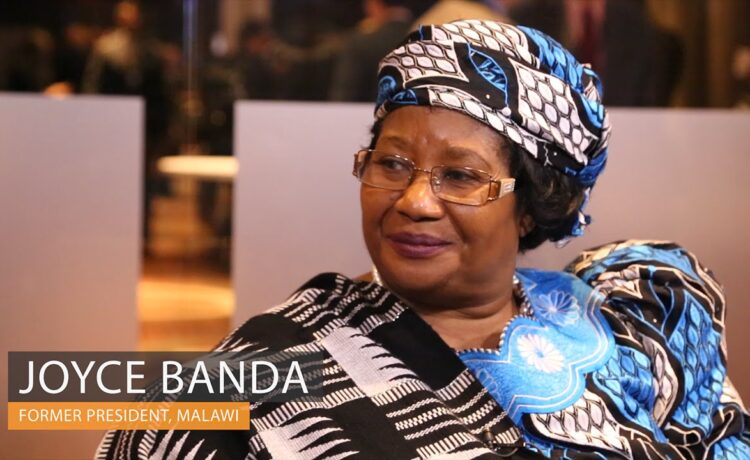The opposition-chaired Parliamentary Public Accounts Committee (PAC) wrote a letter to the Treasury, requesting for documentation regarding the sale of Malawi’s Presidential jet. In particular, the letter which was dated 6th August 2021, indicated the Committee’s undertaking to conduct an inquiry into processes, which were followed to dispose of the jet and how the proceeds of the sale were handled. The letter was also addressed to the Office of President and Cabinet (OPC).
The Jet Sale Perspective
Joyce Banda made headlines in April 2012 when she was sworn in as president of Malawi, becoming the first female head state in southern Africa and the third in the whole continent.
Two months later, she grabbed the spotlight again after deciding to sell the presidential jet and downsize the government’s car fleet.
Her move came as her leadership was trying to cut spending and deal with pressing economic challenges that were created when key donors deserted the country due to her predecessor’s defiance from dancing to donor instructions on the country’s economy.
Among others, her predecessor, Bingu wa Mutharika whose sudden death resulted into her ascendancy to the President, vehemently refused, over four years, to devalue the Kwacha, a move that angered World Bank, International Monetary Fund (IMF) and almost all western donor countries and institutions.
The donors imposed economic sanctions on Malawi including withdrawing both aid and trade, a development that resulted into chronic shortages of Forex and a generally crippled economy. Import commodities such as fuel became scaringly scarce and people started queuing for essentials such a bread and scanty fuel. Life became hard and massive street demonstrations ensued, aimed at toppling the Bingu Administration. Before he could be toppled, Bingu died suddenly of heart attack.
Soon after coming the President, Joyce Banda began by taking measure aimed at restoring the donor confidence. She immediately devalued the Kwacha with a massive 40%, a move that excited the Western donors who immediately returned to Malawi with aid and trade, resulting into lessening of the Forex and fuel crises.
The fact that the Kwacha was devalue by 40% at once resulted into Malawians feeling the shock. Joyce Banda endeavoured to display commitment to eradicate the suffering as well as a show of exemplary austerity measures impacting herself and leaders of her administration. She said “the political will needs to go through the suffering with the people, side by side.” She decided to sell the presidential jet and reduce presidential convoy in that regard.
The jet was reportedly sold at $15 million to a British Virgin Islands company, Bohnox Enterprises. According to Government’s communication then, the proceeds of the transaction were to be used to buy maize and medicine for the country. Reports, however, surfaced that the money was either missing or had been used to offset a military arms debt.
A source in the Treasury, who was allegedly working in the interest of the DPP, secretly informed the media that they could not trace how the funds were used because they were not deposited into the government’s consolidated account known as Account Number One. From that revelation, pressure began mounting on Joyce Banda administration to account for the $15 million proceeds from the jet sale. Several government authorities, however, commented that the money was used for its intended purpose.
At one point, President Joyce Banda addressed the nation at an organised Press Conference where she made the following remarks:
“I was the one who said ‘let’s sell the jet,’ but I didn’t do it alone. I presented the issue before the Cabinet meeting where we agreed that we should use the money for buying maize. We also agreed to buy military equipment for the peacekeeping mission in DRC, buying medicine and contributing to the farm input subsidy program”.
When pressed on the matter, Finance Minister Maxwell Mkwezalamba said the money did not really go into the Treasury, but was used to offset a military arms debt, which the government owed to private defense firm Paramount Group, whose subsidiary is Bohnox.
“Instead of them giving us the $15 million for the presidential jet, we requested Bohnox, given their association with Paramount, to basically pay Paramount that amount,” the then finance minister said. “So that money never came.”
The statement by the finance minister generated a contradiction as it suggested that no amount of the proceeds came to Malawi as all of it was used to offset the debt with Paramount Group while Joyce Banda and the rest of her Government officials including the then Information Minister Brown Mpinganjira told reporters that the money was used to buy maize and military equipment and that some of it was used to finance the farm input subsidy program.
It is this contradiction that raised suspicions of possible dishonest dealings related to the presidential jet sale and embezzlement of its proceeds.
Legal experts also argued that by bartering, the government contravened section 172 of the Malawi Constitution, which does not allow expenditures of government revenue before it is deposited in the consolidated account.
When the DPP returned to power in 2014, it, for lack of proper evidence, failed to prosecute Joyce Banda despite accusing her in political rantings that she embezzled money from the presidential jet sale.
Meanwhile, Joyce Banda has commented on the recent move by PAC to investigate the alleged scandal saying she welcomes any instigations on her including the presidential jet sale. She insists that the sale of the jet was a cabinet decision after discussions which she initiated.
©Shire Times
Writers: Edison Brown Kalichelo; and Hamilton Mwandira
Editor: Innocent Ian Marshal













